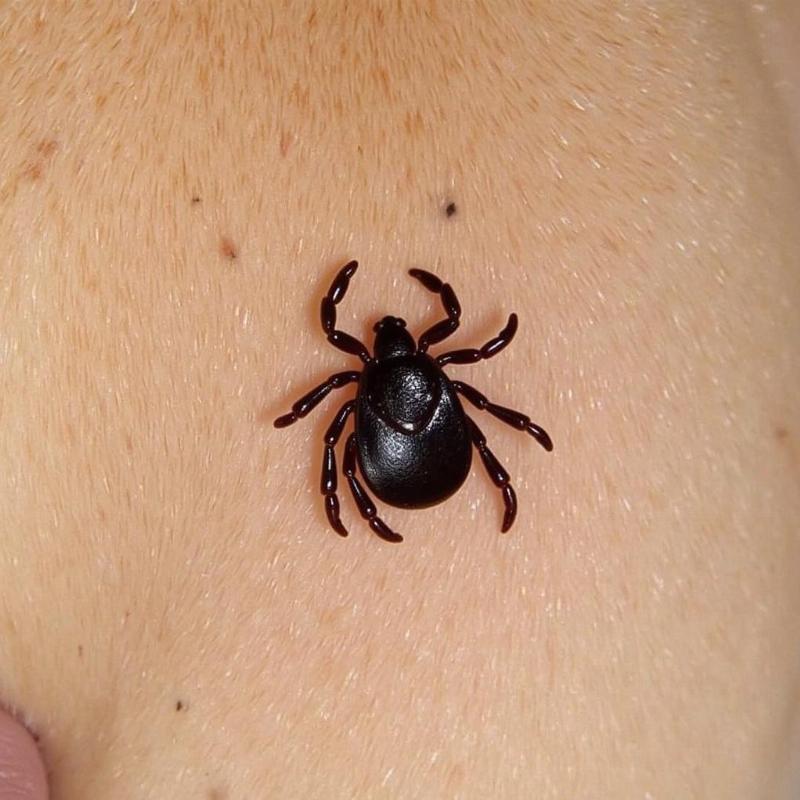Finding a black spot on your dog’s skin can be alarming. Is it a simple skin tag, a tick, or something more serious? This comprehensive guide will help you understand the potential causes of black spots on your dog’s skin, when to seek veterinary care, and how to ensure your furry friend’s skin stays healthy.
Understanding Black Spots on Dog Skin
Black spots on a dog’s skin can manifest in various ways, from tiny freckles to raised bumps or even larger, flat patches. They can be caused by a range of factors, from harmless hyperpigmentation to more concerning conditions like infections or even cancer. It’s important to note the size, shape, texture, and location of the spot, as these details will help your veterinarian determine the cause.
Common Causes of Black Spots
Several common issues can lead to black spots on your dog’s skin. Hyperpigmentation, a harmless darkening of the skin, is often seen in older dogs and certain breeds. It can appear as freckles or larger patches. Another frequent culprit is flea bites, which can cause inflammation and darkened skin, particularly in allergic dogs. Ticks, while often reddish-brown, can appear dark, especially after feeding.
 Tick embedded in dog's skin
Tick embedded in dog's skin
When to Seek Veterinary Care
While many black spots are harmless, some warrant a trip to the vet. If you notice rapid changes in the spot’s size, shape, or color, if the spot is bleeding or ulcerated, or if your dog seems uncomfortable or is excessively licking or scratching the area, it’s time to consult a veterinarian. These could be signs of a skin infection, allergic reaction, or even a more serious issue like melanoma.
Maintaining Healthy Skin for Your Dog
Regular grooming, a balanced diet, and preventative parasite control are crucial for maintaining your dog’s skin health. Regular brushing helps distribute natural oils, removes dead skin, and allows you to detect any skin changes early on. A diet rich in essential fatty acids promotes healthy skin and coat. Finally, year-round flea and tick prevention is essential, especially in areas where these parasites are prevalent.
Preventing Black Spots Related to Parasites
Protecting your dog from fleas and ticks is a key step in preventing black spots associated with these parasites. Use a veterinarian-recommended flea and tick preventative regularly, and check your dog for ticks after outdoor activities. If you find a tick, remove it promptly and correctly using tweezers, grasping it close to the skin and pulling straight up.
Could It Be Cancer?
While the thought of skin cancer is frightening, it’s important to remember that not all black spots are cancerous. However, certain types of skin cancer can manifest as black spots. If you notice a new or changing black spot, especially one that is raised, irregular, or ulcerated, it’s crucial to have it checked by a veterinarian. Early detection and treatment are key to a positive outcome.
Expert Insights
“Regular skin checks are just as important for dogs as they are for people,” says Dr. Emily Carter, a veterinarian specializing in dermatology at Animal Medical Center of New York. “Early detection of any skin changes, including black spots, can make a significant difference in treatment success.”
“Nutrition plays a vital role in skin health,” adds Dr. Sarah Miller, a veterinary nutritionist at Purina. “A balanced diet with appropriate levels of omega-3 and omega-6 fatty acids can help maintain a healthy skin barrier and reduce the risk of skin problems.”
Conclusion
Finding a black spot on your dog’s skin can be concerning, but with careful observation and prompt veterinary attention when needed, you can ensure your furry friend stays healthy and happy. Remember, regular grooming, a healthy diet, and parasite prevention are the cornerstones of good skin health. If you have any doubts about a black spot on your dog’s skin, don’t hesitate to contact your veterinarian.
FAQ
- Are all black spots on dog skin dangerous? No, many black spots are benign, such as those caused by hyperpigmentation. However, it’s always best to consult your veterinarian to rule out any underlying issues.
- How can I prevent black spots on my dog’s skin? Regular grooming, a healthy diet, and consistent flea and tick prevention are essential for maintaining healthy skin.
- What should I do if I find a new black spot on my dog? Monitor the spot for any changes in size, shape, or color. If you notice any rapid changes, or if the spot is bleeding, ulcerated, or causing your dog discomfort, contact your veterinarian.
- Can black spots on dog skin be cancerous? Yes, some types of skin cancer can present as black spots. Early diagnosis is critical, so consult your veterinarian if you have any concerns.
- What are the signs of a serious skin problem in dogs? Signs of a serious skin issue include rapid changes in a skin lesion, bleeding or ulceration, hair loss, excessive itching or licking, and signs of discomfort or pain.
- How often should I check my dog’s skin? It’s a good idea to check your dog’s skin weekly during regular grooming sessions.
- What kind of diet is best for healthy dog skin? A balanced diet rich in omega-3 and omega-6 fatty acids is essential for healthy skin.
Related Articles
Beautdogs.us is your premier online resource for all things dog-related in the US. We provide expert advice on dog breeds, care, and products, catering to both novice and seasoned dog owners. Our team of experienced pet professionals is dedicated to providing you with reliable, engaging, and comprehensive information to help you provide the best possible care for your canine companion. For expert advice or to learn more about our services, contact us at [email protected] or call us at +1 501-555-7529. Visit Beautdogs.us for more information!